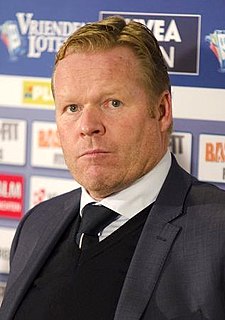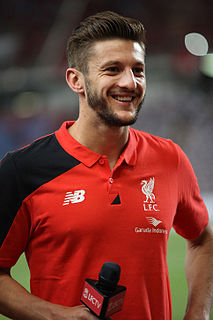A Quote by Jose Mourinho
I followed an Italian manager and it cannot be easy when you follow a manager who thinks very differently.
Related Quotes
The manager administers; the leader innovates. The manager has a short-range view; the leader has a long-range perspective. The manager asks how and when; the leader asks what and why. The manager has his eye on the bottom line; the leader has his eye on the horizon. The manager accepts the status quo; the leader challenges it.
You could summarize everything I did at Apple was making tools to empower creative people. 'QuickDraw' empowered all these other programmers to now be able to sling stuff on the screen. The 'Window Manager,' 'Event Manager,' and 'Menu Manager.' Those are things that I worked on that were empowering other people.
An interesting difference between new and experienced stage managers is that the new stage manager thinks of running the show as the most difficult and most demanding part of the job, whereas the experienced stage manager thinks of it as the most relaxing part. Perhaps the reason is that experienced stage managers have built up work habits that make then so thoroughly prepared for the production phase that they [can] sit back during performances to watch that preparation pay off.


































